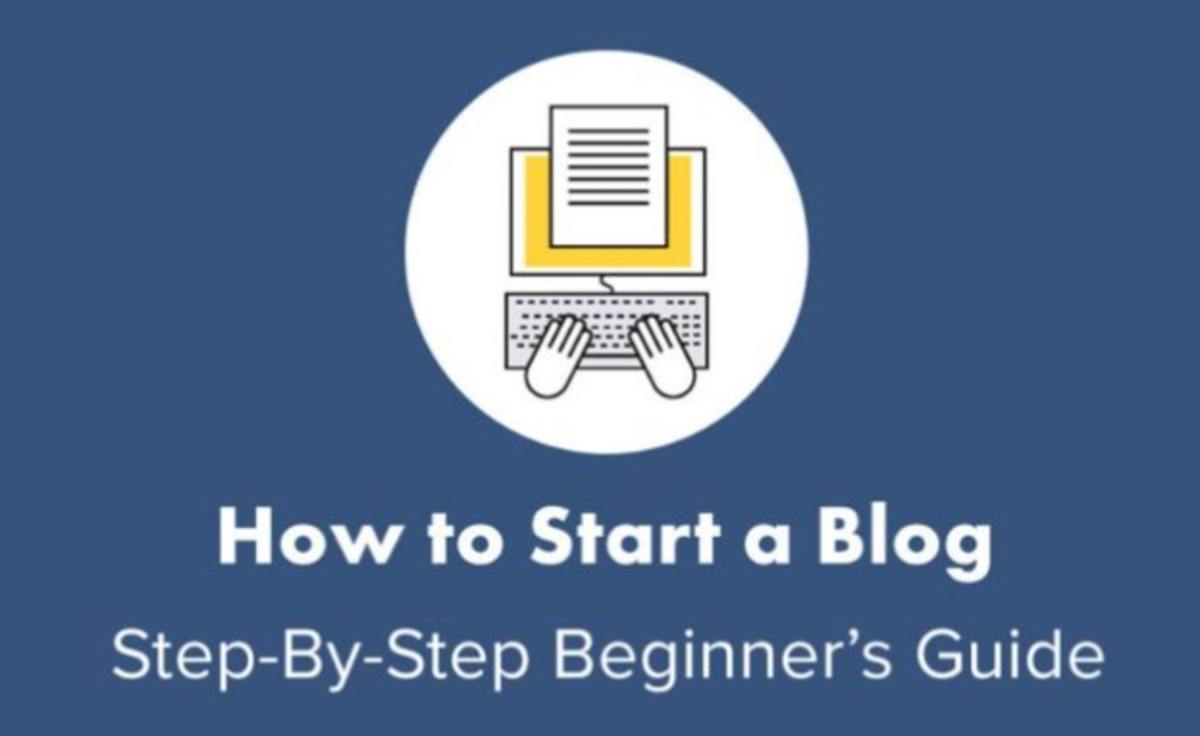Tips on How to Start a Successful Food Blog
Starting a Food Blog: The Basics
Before making any practical attempt to start a food blog, there are several very important points you have to carefully consider. These points apply to every blog, in fact, on any subject, not just food blogs. The reason they are so important is that many of them are one-off considerations and can not be taken in to account or amended in any way at a later time. To paraphrase a saying often applied to marriage: "Begin blogging in haste and repent at leisure." Do make some time therefore to sit down with a notepad and pen and do some serious thinking and planning, as described on this page - your chances of blogging success may very well depend upon it.
The Most Important Thing: Starting a Successful Food Blog
Always remember, no one starts a successful blog of any type...
They cause it to become successful by following such as the tips and guidelines included below...
Successful blogging requires knowledge, time and effort - be aware of that from the start if you want to know any chance of success...
Can you Cook? Do you Know a Lot about Food?
If you are writing an article on a topic which you don't know much about, it is often possible simply to research the subject in detail and publish a very effective and informative piece. This does not apply to blogging and it is important to know this. Blogging is a long term undertaking. You will be required to write authoritatively and well on your subject, on a regular basis, in the long term. While you will of course be able to research the material for certain posts and forever be learning about your blogging subject, it is imperative that you have a solid grounding in it before beginning your blog.
Your food blog need not necessarily be about the act of cooking. It could of course equally be about food shopping, choosing food products wisely, or anything else connected with the food industry and eating in general. Remember, though, that food and cooking is one of the most popular blogging subjects of all and you are going to have to be good...
Choose a Very Precise Subject for your Food Blog
The word niche is one which is often applied to blogging. A niche is simply a very defined aspect of their wider topic which a blogger has identified and will attempt to exploit in terms of Web traffic and possibly making money. It is imperative to try to focus your food blog subject very precisely in this way if you are to know any realistic chance of long term success. For example, starting a blog on, "How to Cook," is not a good idea. The competition in the search engines is likely to be in the hundreds of millions and obtaining any traffic at all from this so important source will be nigh on impossible. However, "Easy Beef and Steak Recipes for Beginner Cooks," is a far better defined subject and much more likely to draw that organic traffic. Remember, however, to make sure that the subject is one which you can write a lot to and that the information you hope to share is likely to be of interest and value to Web browsers.
What if I Run out of Recipe Ideas for my Food Blog?
It is very unlikely that anyone starting a food blog involving recipes will have enough recipes of their own creation tucked away to last them indefinitely. You should always be on the lookout for new recipe ideas and ways of developing new recipes of your own and there is no end to the number of ways in which this can be achieved.
Try watching TV cooking shows and consider how you could adapt a featured recipe to suit your own style and the nature of your blog. Come up with two or three basic recipe ingredients and search Google using the name of these ingredients and the word recipe for further ideas which you can adapt. Borrow cookbooks from family, friends, or your local library and again embelish what you find. Running out of recipe ideas, in the modern world, should never be an excuse for failing to post to a blog which has been well thought out in the first instance.
Choosing a URL and Hosting Platform for your Food Blog
When you have chosen the precise subject nature and title for your blog, it is time to get it up and running. The first thing you will have to choose is a hosting platform. This is not something which should be chosen lightly as different blog hosting platforms have different terms and conditions as to what you can incorporate on your blog and some will require fairly advanced Web technical skills. An excellent choice for blog hosting in most respects is Blogger, Google's blog hosting platform. It requires only limited technical ability, the help provided is extensive and when the stage is reached (not yet!) of monetising the blog, it incorporates not only Google Adsense but very simple ways of linking to relevant Amazon affiliate products.
When you have joined Blogger or any platform, you will be required to choose a URL for your blog. This should be similar to the title and again very focused with regard to your niche subject. In relation to the mythical, "Easy Beef and Steak Recipes for Beginner Cooks," one idea for the part of the Url you are to determine may be, "easy-beef-steak-recipes-beginners."
Begin Posting to your New Food Blog
When you have created your blog, it is immediately time to begin making posts. One tip in this respect is to try to have three posts ready to make immediately. Although on an ongoing basis posting two or three times a week is quite sufficient, making three posts immediately will help to convince initial visitors to the blog that you are serious about adding to it and make them more likely to either follow it or return to it at a later date.
Particularly where your blog relates to providing recipes or some other form of instructional cooking, quality photographs are essential. Make sure that you have a good photograph visible at the top of every blog post. This is what will catch a visitor's initial attention and is the thing most likely to get them reading and keep them reading.
Populate the Side Bar of your New Food Blog
The side bar of your food blog is where you will include a whole host of information for the benefit of visitors to your blog. This is where you will ultimately seek to include the majority of your revenue generating tools but it is far more important, in terms of generating interest, that you include sections which are helpful to your visitors and not simply a way of trying to part them with their hard earned cash. Include link panels to other sites of similar content around the Web. Include an easy way of accessing the historical posts on your own blog. Try to include pictures which can be made to serve as links as ways of attracting attention. Be sure to take the time to explore in full your options for populating your blog side panel, as this will appear every time your blog is viewed, regardless of upon which post a visitor lands. The tools which Blogger offers in this respect are very impressive!
Only Now is it Time to Monetise your Food Blog
Be honest, have you been wondering why this page has not yet covered the hugely important subject of how you are going to make money from your new food blog? There is a very good reason for that and it is extremely straightforward. The reason is that in order to make money from a blog, in any of the applicable fashions, you have to have blog visitors to make that money from. In even more simple terms, in order to sell a product, you firstly have to create an attractive sales platform.
Imagine that you are walking down the street in your hometown or city. Whether it be the smallest town or the biggest city makes no difference. You find yourself passing a store/shop where the front display area is empty, the window is unclean and all you can see is a huge, poorly written sign taped in the window, reading, "Buy my Stuff! It's Really Good!!" Will you even bother to go in and take a look around???
Of course you won't...
There are any number of ways in which it is possible to monetise a blog but without doubt, the two most popular are by using Google Adsense and selling extremely relevant products on Amazon. If you already have accounts with those companies prior to starting your blog, this will allow you to include the relevant material from the outset. If you don't, however, you will have to apply and both sites will take a look at where you are intending placing their ads/products prior to accepting you as a member/affiliate. This is another reason for getting a decent blog operational before making such applications.
It is imperative when monetising a blog that you be sensible and do not over-populate your blog with too many products for sale and especailly not ones which may be deemed to be irrelevant. Offer only products for sale which are likely to be of use to people interested in the subject of your blog and show don't tell people why they should buy them and how they will prove useful. This means including products in a post which will assist people to prepare your recipe, or products in the sidebar which are extremely relevant to your style of cooking overall. Irrelevant or poorly featured products will not sell.
Link Building - The Basic, Initial Steps
Links to and from related sites around the Web is imperative to online success. It is always a good idea to provide links in the text of your blog - or in dedicated link panels in the side bar - to other sites that your readers may well find of interest. Even more important, though, is obtaining backlinks to your blog from other sites around the Web.
The most powerful backlinks of all will come when other bloggers and Webmasters find your blog and its posts in the search engines and choose to link to it as a service to their own readers. With the best will in the world, however, this will take time. In the short term, therefore, you will have to legitimately obtain your own backlinks.
In most instances, it will prove advantageous to link in this way to each individual post of your blog (each will have its own URL). The easy way to do this on each occasion is to submit the link to social bookmarking sites such as StumbleUpon and Delicious. It is vital to note, however, that these sites should firstly be explored to see how they operate. In order to stand any chance of making yourself and your links popular upon them, you will have to be an active part of the community, interacting with others in the expected manner in each case and not simply submitting your own links.
Always Leave Visitors to your Blog Wanting More
When someone lands on your blog, it is imperative that you not only satisfy their requirements on that occasion but that you make them want to come back again for more information. Obtaining regular traffic (followers) for a blog can be essential to its long term success. In this very vein, therefore, and by way of leading by example...
If you are serious about creating a food blog which stands a good or even better chance of success, mull over the tips included above, think about how you can apply each of them to your own personal creation and how you can take the food blogging world by storm!








